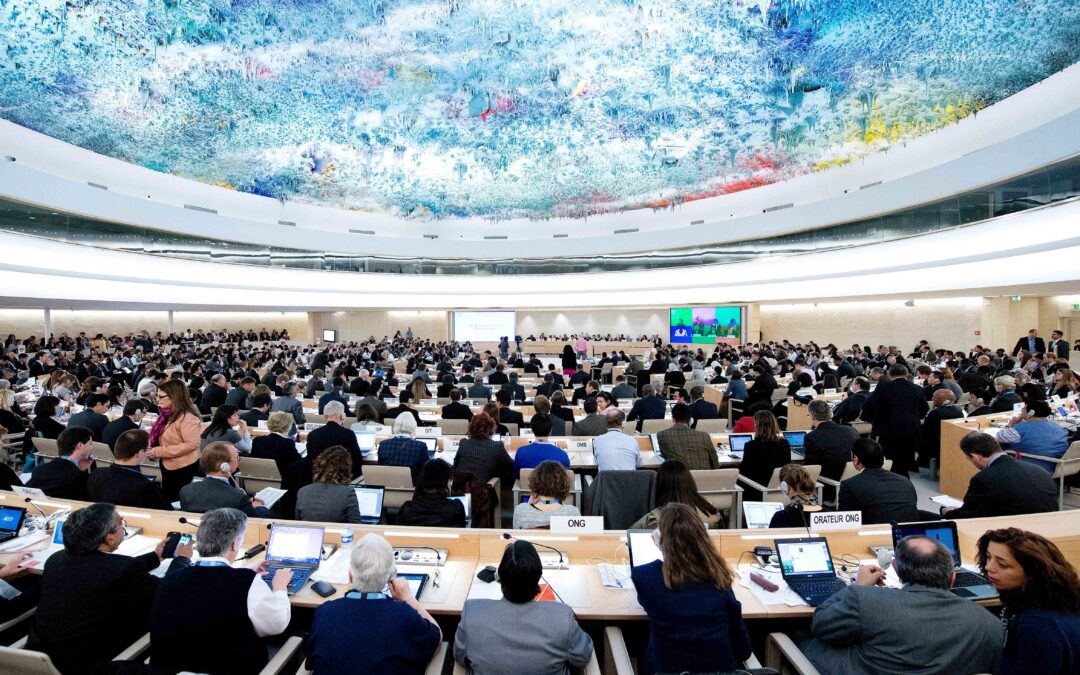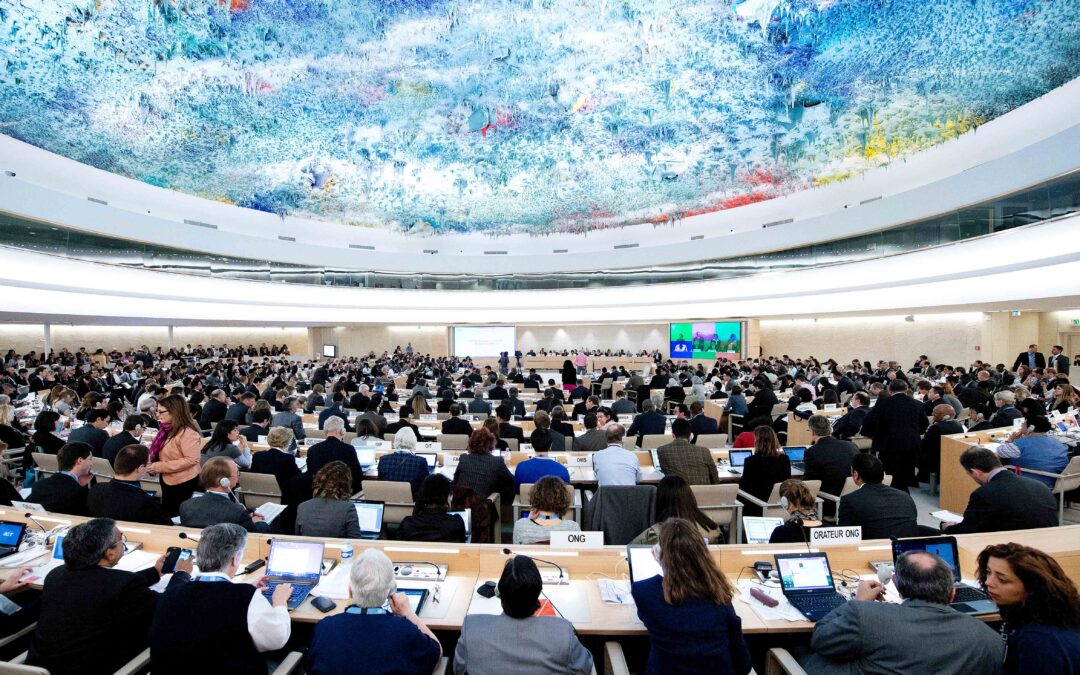
Mar 12, 2019 | Advocacy, Non-legal submissions
The ICJ today highlighted threats to the rule of law in Turkey, Poland, Hungary and Azerbaijan, and the need to address corporate complicity in South Sudan, at the UN Human Rights Council in Geneva.The statement, delivered during general debate, read as follows:
“The situation remains grave for the rule of law and legal protection of human rights in Turkey and Poland.
In Turkey, constitutional reforms in 2017 that undermined the independence of the judiciary should be abolished. Civil society members are prosecuted under overbroad and vague terrorism offences.
In Poland, the Legislature is trying arbitrarily to remove one third of the Supreme Court, a measure that is on hold only temporarily. Unjustified disciplinary proceedings are also being pursued against Polish judges for having sought a ruling of the Court of Justice of the EU.
Elsewhere, in Hungary civil society is ostracized and subject to legislation that risks criminalizing their legitimate activities. In Azerbaijan, as one example of a broader pattern of interference with lawyers and other human rights defenders, lawyer Elchin Sadigov was reprimanded for advising in a confidential manner to his client in detention to complain about torture to which he allegedly had been subjected.
The ICJ is also concerned at the findings by the Commission on Human Rights in South Sudan (A/HRC/40/69, A/HRC/40/CRP.1) that point to the oil industry as a “major driver” in the continuation of the armed conflict and resulting human rights violations. Potential corporate complicity with crimes under international law demand investigation and a strong monitoring mechanism for the use of oil revenues should be established.”

Mar 20, 2018 | Advocacy, Non-legal submissions
The ICJ today spoke at the Human Rights Council about the creation of a UN database of business enterprises involved in Israeli settlements in the Occupied Palestinian Terrority (OPT).
The statement, delivered in general debate under item 7 of the Council agenda, read as follows:
“Regarding the Report on a Database of business enterprises involved in listed activities in the settlements on the Occupied Palestinian Territory (A/HRC/37/39), the ICJ recognizes that considerable progress has been made, but considers that the normative and methodological frameworks of the database would benefit from incorporating an analysis of corporate complicity under international law, in addition to the existing references to the UN Guiding Principles on Business and Human Rights.
The ICJ stresses that a transparent process and strong due process safeguards in relation to companies alleged to be involved are essential and notes the efforts of the OHCHR in this regard.
All States, including the home States of the companies involved, have a responsibility to prevent companies from operating in breach of international law. Businesses themselves should see the database as an opportunity to more proactively incorporate respect for human rights within their policies and operations.
The database should contribute to global efforts to hold all business enterprises accountable for their role in violations of human rights and humanitarian law. Indeed, the ICJ urges all States, including those that have supported the creation of this database, to support and give due attention to addressing the human rights impacts of businesses in their own territories as well as global operations of businesses for which they are the home State.”
Video of the statement is available here:

Apr 7, 2014 | Events, News
This is the English title of a book by Horacio Verbitsky and Juan Pablo Bohoslavsky, with contributions from more than twenty specialists, which reveals complicity between private actors and the dictatorship in Argentina.
The book will be launched on 10 April at 4 pm (16.00)in the Library Events Room (B-135) at the Palais des Nations, Building B, 1st floor, in Geneva.
Carlos Lopez, ICJ Senior Legal Adviser on Business and Human Rights will be among the discussants at the event. He contributed one chapter of the book, on corporate complicity.
The cases of business collaboration discussed in the book range from the role of private companies, to the financing role of the banks and the mass media.
The book also discusses economic illegal appropriation of business, the role of lawyers, business organizations, economic think tanks, the Catholic hierarchy, and scholars.
UNOG-launch book corporate complicity in Argentina-news-events-2014 (full invitation in pdf or you can also enlarge the picture)

Feb 25, 2013 | Advocacy, Cases, Legal submissions
 The ICJ and Amnesty International presented additional observations in the case Al Nashiri v Poland before the European Court of Human Rights.
The ICJ and Amnesty International presented additional observations in the case Al Nashiri v Poland before the European Court of Human Rights.
In their supplementary third party intervention, the ICJ and AI outlined developments in light of the case El-Masri v the Former Yugoslav Republic of Macedonia on enforced disappearances, on diplomatic representations in light of the Grand Chamber’s findings on responsibility for violations outside the jurisdiction, on the gross human rights violations that detainees previously held in the USA’s secret detention and rendition programme are currently enduring, and on relevance of the Grand Chamber’s observations in El-Masri in relation to any potential resort to ex parte materials and procedures.
Poland-ICJAI-SupplAmicusBrief-AlNashiri v Poland-legal submission-2013 (download the third party intervention)









